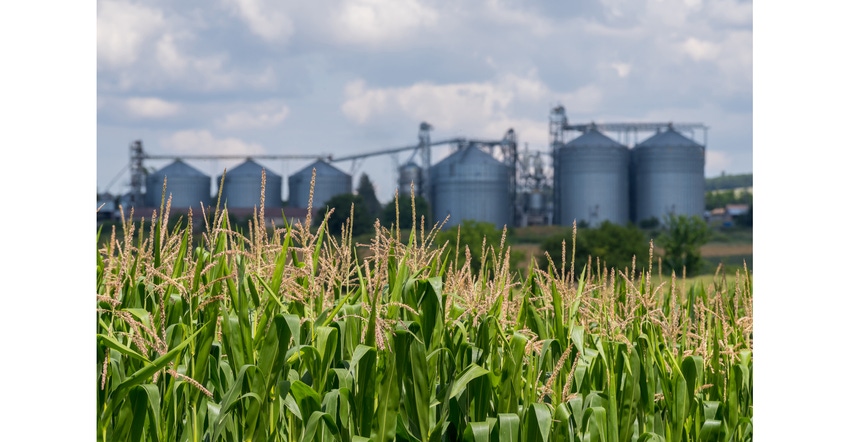CSB Releases Final Report on Fatal Dust Explosion at Didion Milling Facility
The explosion in May 2017 fatally injured five employees and seriously injured 14.

The US Chemical Safety and Hazard Investigation Board (CSB) released its final report into the deadly explosions and fires at the Didion Milling dry corn milling facility in Cambria, WI.
The employees began to evacuate and attempted to notify other employees of the emergency using their radios, but conflicting radio traffic caused confusion with the message. A fire spread through the process equipment via interconnected dust collection systems resulting in explosions in some of the dust collection equipment. Secondary explosions subsequently occurred throughout the facility. Employees not within the immediate vicinity of the observed fire were unaware of the emergency and the need to evacuate prior to the explosions.
“Combustible dust explosions and fires can be deadly and incredibly destructive," said Steve Owens, chairperson at CSB. "The terrible tragedy at Didion was made even worse due to the lack of important safeguards in the design of the mill equipment and the lack of engineering controls at the facility that could have reduced the potential for serious fires and explosions. Our investigation also determined that Didion had a poor safety culture and inadequate leadership on safety issues that contributed to these tragic circumstances.”
The CSB determined the cause of the dust explosions and collapsed buildings was the ignition of combustible corn dust inside process equipment, which transitioned to multiple explosions.
The report emphasized that Didion did not recognize the hazards posed by combustible dust throughout the milling process. This resulted in Didion not understanding or addressing those combustible dust hazards.
The CSB investigation found that a key factor which contributed to the seriousness of the injuries was that Didion did not evaluate the risk of fires nor the need for flame-resistant personal protective equipment. Because of this, Didion did not provide personal protective equipment to employees in the mill, some of whom suffered burn injuries during the incident, including some fatal injuries.
The CSB’s investigation further found that the company failed to investigate prior incidents at the mill and implement corrective measures to prevent recurrence. Despite several previous fires, no effective corrective measures were taken to prevent fires from happening again.
“The CSB’s investigation found several issues which contributed to the severity of this incident. They include a lack of hazard recognition, a failure to provide proper engineering controls, and a failure to implement safety management systems to mitigate combustible dust hazards which could ultimately impact the safety of all the workers at the facility," said Investigator-in-Charge Cruz Redman.
The report determined insufficient safety regulations which cover combustible dust operations. While the Occupational Safety and Health Administration (OSHA) regulates some aspects of combustible dust hazards, OSHA does not have an overarching standard to manage the hazards presented by combustible dust. As a result, Didion was not required to implement safety management systems, such as those required for other highly hazardous materials.
As a result of its findings, the CSB is issuing more than a dozen recommendations to Didion, the National Fire Protection Association (NFPA), and OSHA.
The federal agency is recommending that Didion develop a comprehensive combustible dust safety program, which will include management of change, safety information management, fugitive dust management, management of audits, incident investigations, dust hazard analyses, personal protective equipment, and emergency preparedness.
The CSB also is recommending that OSHA develop a national regulation for industries that handle combustible dust, as well as increase follow-up inspections when combustible dust hazards have been identified at facilities. Similarly, the CSB is calling on the National Fire Protection Association (NFPA), to update its combustible dust standards to include more comprehensive requirements for dust hazard analyses, incident investigations, and management of change.
Didion Milling responded to the CSB report: Didion Milling is pleased that the Chemical Safety and Hazard Investigations Board (CSB) agrees with Didion that the tragic 2017 explosion that occurred at its Cambria, Wisconsin, mill was not started by fugitive dust relating to housekeeping procedures but resulted from the ignition of corn dust inside process equipment. However, Didion disagrees with much of CSB’s report. Both Didion and leading combustible dust safety experts provided the agency with data to correct the report’s many factual errors; however, CSB did not include a significant amount of that information in its report.
The company stated that most recommendations in CSB’s report had already been implemented when Didion built its new mill in 2018. The new mill was designed and constructed with the guidance of several leading engineering and safety experts, and Didion continually evaluates safety procedures and equipment to remain consistent with, if not ahead of, industry best practices
For more information on safety and collection, see the Powder & Bulk Solids sections on proper dust collection and explosion protection and safety.
About the Author(s)
You May Also Like




